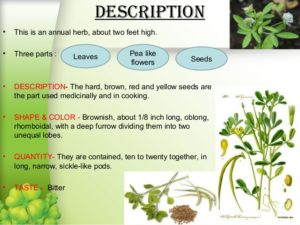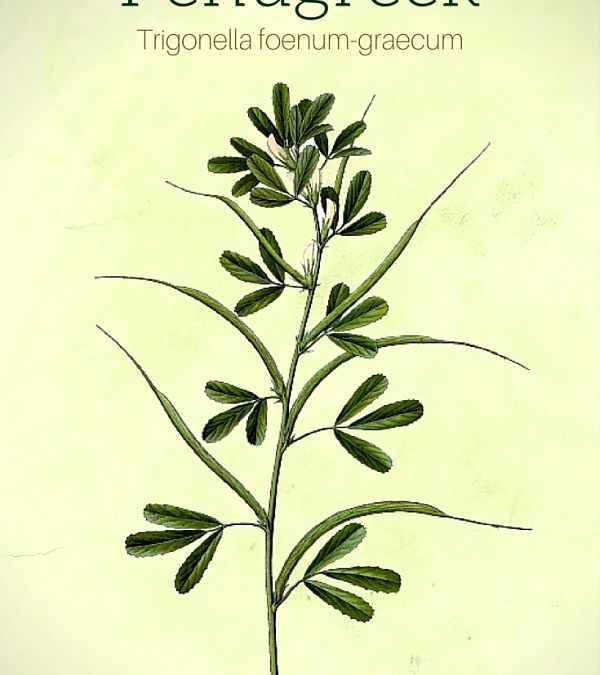I am writing about a popular herb that moms use to help increase their supply. I always want moms to be working closely with an IBCLC to determine that low milk supply is truly an issue for them. There are other avenues to explore first and what you think might be low supply, may not actually be. When low supply is truly an issue, there are times when simple changes can have quick results and times when quite a few changes and some hard work and time can have significant results. As you all know, there are unfortunately times when some mothers just struggle so much and there are medical reasons for never being able to increase their supply, no matter what techniques you try, what herbs or medication you take. Working with an experienced IBCLC, you will leave no stone unturned and know that you did your absolute best.
As far as herbs go,
I find that there is this general comfort level with moms who take herbs. They seem to feel that since it is an herb, that it is natural and that anything natural is safe. Safe for her and for her baby. This is not necessarily true. An herb is a plant. Herbs are sold as tablets, capsules, powders, teas, tinctures as well as fresh or dried plants. You can easily find herbs in many forms in your local health food store as well as drug store and even at stores like Target and your local food stores. This easy access to herbs, further perpetuate the myth that all herbs are safe. Many are quite safe. However, the question is – safe for who? and under what conditions?
For example: Some may be safe for a majority of people, however, if you have allergies to some foods, you might be allergic to an herb or herbal blend that has that plant in it. Because you are not looking at the ingredients or because you are just not thinking of it as a food, you might take an herb that is not safe for you. Perhaps you have no allergic response to an herb that you take, however, it makes your baby incredibly gassy.
You may go down the rode of trying to figure out what you are eating that is perhaps making your baby excessively gassy or perhaps in pretty severe belly pain. Others are convincing you that it is your milk that is not good for your baby. It might be so bad that you give up on breastfeeding. All to find out that you were taking supplements, and not only just supplements, but in megadoses. Because if 4 capsules a day will increase your supply, why not take 8 capsules a day and make more milk quicker? But see how this can really hurt your baby. A little of an offending food can hurt your belly, but have that offending food day in and day out & you are in immense belly pain.
Taking this a few steps further – What if an herb you are taking is actually harming you? Causing your blood sugar to drop to a dangerous level? Or what if it is interacting with a prescription medication you are taking? Perhaps these herbs you are taking affects your overall health. Such as interacts negatively with diabetics or has a negative impact on your thyroid levels.
I want to address just one herb that is quite popular in the world of breastfeeding. It can easily be purchased for less than 20 bucks, in most stores and sold as capsules and powder and teas and tinctures. Spend 20 bucks, no prescription needed and you can begin taking something that will help you build your supply? Sounds good to me!
If you have been around the breastfeeding block for a bit, you have probably guessed that I am talking about Fenugreek. You know this to be a popular herb. Maybe you know there should be some caution before taking it. Perhaps this is new to you?
It is generally quite safe. Fenugreek has been used for generations in cooking and in salads.
This herb and others can be taken quite safely in recommended doseages. When you are eating it in foods or drinking it in teas, it is more difficult to ingest too much. However, when you are taking tablets or capsules or liquid tinctures, it is easy to take too much. What I find happens a lot, is that moms want to quickly increase their supply, so they take more than the recommended dose, sometimes even doubling the dose.
If there is no concern about side affects, there are not issues.
However if you have a health concern, things are differently.
Consult your healthcare professional before taking large doses of any herbs or supplements.
Also consider the dose that is effective for you. If you are taking a large dose and not seeing results in two to three days, ask your lactation consultant for advice. You might have low milk supply caused by a condition that does not respond to fenugreek. Common sense and professional advice can not only limit potential side effects but also save you valuable time and frustration, and get your breastfeeding relationship on track much quicker.
The most common thing I hear about Fenugreek is intestinal upset in a small number of moms.
When it is mixed with other herbs, the possibility of side effects is less. This is one of the reasons I find mothers do better with with herbal blends. Several herbs put blended together, all of which can help to increase supply, but decreasing the side effects that taking large doses of just one herb might take.
In addition to GI upsetness, here are other side effects you should be concerned about.
Since Fenugreek is a legume, if you have an allergy to peantus, you should avoid fenugreek, as this puts you at a risk factor for having an allergic eation.
Hypoglycemia – Fenugreek lowers blood sugar and it can be helpful to control blood sugar by diabetics. But what if you are prone to low blood sugar, can you see how taking Fenugreek would definitely not be good for you, particularly if you are taking high doses.
Some moms have told me that they are taking it during their pregnancy because they are nursing a baby or toddler and they notice a drop in their supply. This drop in supply is very normal, but taking fenugreek is definitely not safe to take during pregnancy. It stimulates the breast tissue which is smooth muscle however, the uterus is also a smooth muscle and you do not want to stimulate the uterus during pregnancy.
Other reasons to not take Fenugreek.
If you have been described blood thinners.
If you have a thyroid disorder. Unfortunately many moms are undiagnosed.
 While I do take a basic medical history as it related to lactation, as an IBCLC, I am not taking a comprehensive medical history and am not certified to advise you on what is safe and what is not for each individual. Between the fact that each year, More mothers initiating breastfeeding and combine that with the easier availability of herbs, well together this has allowed healthcare providers and in this case lactation consultants to be more aware of conditions under which moms should not be using fenugreek.
While I do take a basic medical history as it related to lactation, as an IBCLC, I am not taking a comprehensive medical history and am not certified to advise you on what is safe and what is not for each individual. Between the fact that each year, More mothers initiating breastfeeding and combine that with the easier availability of herbs, well together this has allowed healthcare providers and in this case lactation consultants to be more aware of conditions under which moms should not be using fenugreek.Overall, my message to you is – Low supply – seek out the expert help from an IBCLC. Chances are you may very well be likely to solve your low supply with some excellent breastfeeding management skills. If there are not the changes in your supply that you are hoping for, you will work together on a care plan which may include herbs and other ways of increasing your supply.


